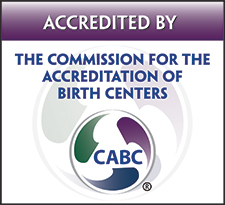Depression, anxiety, and other mental health issues are the most common complications of childbirth and pregnancy. These health conditions, known as perinatal mood and anxiety disorders, make up a spectrum of different symptoms that range in severity and can appear during pregnancy or in the first two years after childbirth. Mental health issues related to pregnancy and childbirth affect 1 in 7 birthing parents and 1 in 10 of their partners. The risk of developing these issues is even greater for parents of color, who often face more obstacles getting the care they need.
In recent years, many celebrities have started speaking out about their experiences with mental health issues during and after pregnancy, including Meghan Markle, Chrissy Teigen, and Alanis Morissette, among many others. The topic has also become widely discussed on social media platforms and other public forums. The hope in telling these stories is that parents who are struggling will know that they are not alone, that this is temporary, and that there are resources and support available.
Although we typically hear about these challenges after baby is born, mental health issues are common throughout pregnancy. All of the lifestyle changes, physical transitions, loss of bodily autonomy, and forced acceptance of the unknown can feel incredibly isolating for pregnant folks, especially if they don’t have others in their close circle who can relate to their experiences or when people are telling them to “just enjoy their pregnancy”. It’s important for all healthcare providers to screen people both during and after pregnancy for perinatal mental health issues. Screening is easy – just a few brief questions to be answered electronically or on a handout (some providers may ask these questions during appointments, but best practice is for the client to complete these questionnaires on their own). At Fika Midwifery, our clients are screened at least 3 times during the course of their care with us.
Beyond these screenings, if you are experiencing symptoms of depression or anxiety, please reach out to us as soon as possible so that we can help you get the treatment you need. Sometimes mood issues are caused by underlying medical conditions that can occur due to pregnancy, like thyroid changes or anemia, so we want to rule these out as well. Treatment for mental health issues related to pregnancy involves self-care, social support, talk therapy, and/or medication. These conditions often do not resolve on their own, but respond very well to treatment.
You may have heard of the baby blues. This is an incredibly common occurrence that affects up to 80 percent of birthing parents in the earliest days after childbirth. Huge hormonal shifts and the inevitable lack of sleep that goes with having a newborn contribute to the ubiquity of the baby blues. Symptoms may include:
-
Trouble sleeping and/or eating
-
Rapid mood swings
-
Feeling overwhelmed, helpless, sad, or anxious
-
Irritability
These symptoms usually go away on their own within the first 2-3 weeks postpartum. If these feelings persist, it is important that you reach out to us or your primary care provider for treatment and referrals as soon as you can.
Unlike the baby blues, postpartum depression, anxiety, and other mood issues do not usually go away on their own. Some people start to feel depressed or anxious right after they give birth, while others might not have any symptoms for several weeks or months. Although the misconception persists that anyone with postpartum depression is having thoughts of hurting their baby, the reality is that these issues can take many forms, and that particular symptom is actually quite rare. Partners and other support people should educate themselves on perinatal mental health issues as well, so that they can help identify when someone they love is struggling. They are often the first people to notice that something is wrong, as it can be challenging to identify these changes in yourself.
Symptoms of postpartum mental health issues include:
-
Feeling depressed most of the time
-
Feeling hopeless, guilty, or worthless
-
Excessive worry
-
Racing thoughts
-
Restlessness or loss of energy
-
Changes in appetite
-
Sleeping much more or much less
-
Difficulty concentrating
-
Losing interest in things that you used to enjoy
-
Feeling withdrawn from family and friends
-
Difficulty bonding with your baby
-
Irritability
-
Thoughts of death or suicide
Taking care of yourself when you are struggling takes strength, bravery, compassion, and love.
It is important for both you and your baby that you seek help when you need it. We are fortunate to have a wealth of resources available that can help people overcome perinatal mood and anxiety disorders. Some of our favorites are listed below. If you or someone you know is struggling, please reach out to us or another provider for help. This is temporary and with adequate treatment you will feel well again.
Perinatal Mental Health Resources:
-
Western New York Postpartum Connection – Provides a comprehensive directory of local perinatal mental health resources including therapists and counselors, support groups, and parenting meet-up groups. This site even provides information on insurance or sliding scale payment options for therapists.
-
Black Emotional and Mental Health (BEAM) – Features a virtual directory to connect you with mental health professionals online. The Black Virtual Therapist Directory’s mission is to remove the barriers that Black people experience getting access to or staying connected with emotional health care and healing through healing justice based organizing, education, training, grantmaking and advocacy.
-
Postpartum Support International – PSI’s toll-free helpline can be reached at 800-944-4PPD (4773). The helpline serves more than 100 callers a month and rapidly refers callers to appropriate local resources including emergency services. Help is available for both English and Spanish speakers. You can also text “Help” to 800-944-4773 (EN) or 971-203-7773 en Español. In addition, PSI leads online support groups in English and Spanish every week, led by trained PSI facilitators. They also run a free “Chat with the Experts” via phone on first Mondays for dads and every Wednesday for moms, facilitated by PSI Professionals.
-
Postpartum Resource Center of New York – Website includes a state-wide directory of mental health providers and other resources by county. They also offer a free, confidential, state-wide helpline for English and Spanish speakers toll-free at (855) 631-0001. The helpline is open 7 days a week from 9am-5pm, with all calls returned that same day.
-
Brylin Behavioral Health Center – Private hospital with staff trained in perinatal mood and anxiety disorders. Inpatient and outpatient perinatal mental health services are available. Voluntary patients accepted (no physician referral needed) 24/7 by calling admissions at (716) 249-6376 ext. 2264.
Author Mary Badame is the Quality Assurance Manager at Fika Midwifery and is a passionate advocate for midwife-led care, increased birth options, and better reproductive healthcare for everyone.




